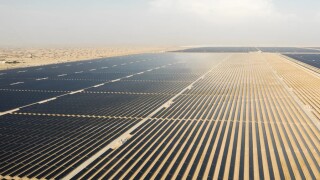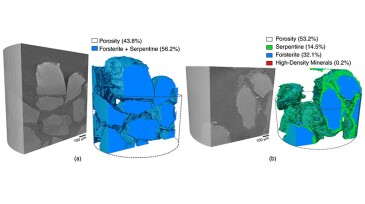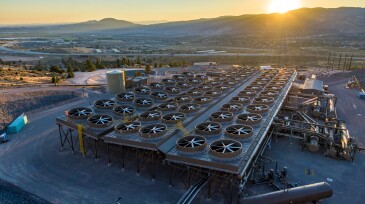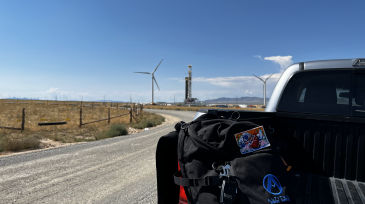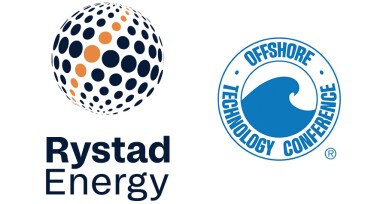Energy transition
The appraisal well in Utah confirmed a geothermal resource exceeding 555°F at a depth of approximately 11,200 ft.
The NLR has released its 2025 US Geothermal Market Report, documenting 4 years of industry growth and providing policymakers and stakeholders with an updated overview of the US geothermal market.
The report says the capacity of renewables in the region is set to grow tenfold by 2040 as electricity demand and new sectors drive rapid solar and wind expansion.
-
This study concludes that it is relatively easy to generate enhanced hydrogen in the laboratory during injection of high-pH aqueous solution through a pack of olivine sand.
-
The SPE Reservoir Technical Discipline and Advisory Committee invite their Reservoir members worldwide to participate in a new survey aimed at assessing the current state of reservoir engineering across industry and academia. Deadline is 21 July 2025.
-
The SPE France Section marked a major milestone with its 40th anniversary celebration in March, held at the iconic Musée des Arts et Métiers in Paris. This historic venue—dedicated to centuries of engineering excellence—served as a fitting backdrop for an evening that honored legacy, acknowledged present challenges, and explored the evolving role of oil and gas profes…
-
DNV’s carbon capture and storage outlook forecasts a massive shortfall in the projects necessary to help the world reach net-zero emissions by 2050.
-
The Dutch marine contractor says it plans to outfit its construction vessels with small modular reactors over 5 years.
-
The emergency permitting rules aim to accelerate geothermal energy development. Ormat Technologies' three Nevada projects will be the first to benefit from the streamlined process, with environmental reviews cut from years to weeks.
-
SponsoredAltitude Energy Partners optimized drilling efficiency by minimizing dysfunctions and protecting downhole components. Their directional drilling team ensured consistent curves and laterals through precise BHA design, modeling, and trajectory control—reducing nonproductive time and drilling costs, and achieving a 100% improvement in efficiency by pad completion.
-
The times are changing and so are our industry’s prospects, as hydrocarbons are now recognized as cardinal to affordable energy security for the conceivable future. But, in avoidance of suspense, the answer to the headline question is “absolutely.” Here we look at the rationale why.
-
EVP Giulia Chierchia and Chairman Helge Lund are stepping down amidst difficult Q1.
-
The CEO and North America research director for Rystad Energy shares insights from a 3-year Knowledge Partnership between the global consultancy and OTC.



